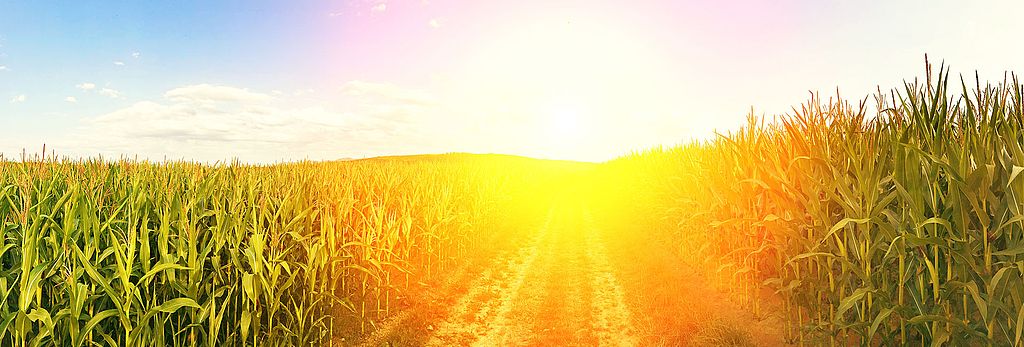
Biomass
What is biomass?
Biomass (in energy engineering) refers to all recent materials of organic origin, i.e. organic substances that occur in or are produced by plants or animals.
This general definition should not be seen as analogous to the definition of biomass in the German Biomass Ordinance (BiomasseV 2001), which specifies the substances that are counted as biomass under the Renewable Energy Sources Act (Erneuerbare-Energien-Gesetz - EEG). Other substances may be referred to as biomass, even if they are not named as such in the German Biomass Ordinance.
According to this general definition, biomass can be distinguished into primary and secondary products. Primary products, i.e. plant mass, are formed through direct photosynthetic utilization of solar energy. Secondary products, on the other hand, are formed by the conversion or decomposition of organic matter, e.g. by animals or other consumers.
Primary biomass products are used for the production of biofuels, biogas, fuels to generate motion and lubricants (mainly industrial lubricants). The use of biomass for energy purposes is correspondingly diverse: from power generation and heat extraction to fuel production. Accordingly, either directly or after its refinement into another solid, liquid or gaseous secondary energy carrier, biomass can be used in biogas plants, power plants and heating plants, central heating and standalone stoves/furnaces, turbines and engines to generate electricity or power vehicles.
Overall, biomass is by far the most used renewable energy source to provide heat and electricity compared to other renewable energies such as solar and wind power, hydropower and geothermal heat.
| Biomass primary products (esp. renewable raw materials) |
|---|
Conversion of solar radiation into organic matter by way of plants (photosynthesis); stored solar energy |
|
| Biomass secondary products (esp. organic waste) |
|---|
Produced by conversion or decomposition of organic matter, e.g. by animals |
|
Biofuels are traded by the Mabanaft group, e.g. by Mabanaft Deutschland, Mabanaft Limited, UK, and the Petronord group.
Fuels at Mabanaft Deutschland
Fuels at Mabanaft Limited, UK
Fuels at Petronord
Status: December 2015
All information subject to change. Errors and omissions excepted.

